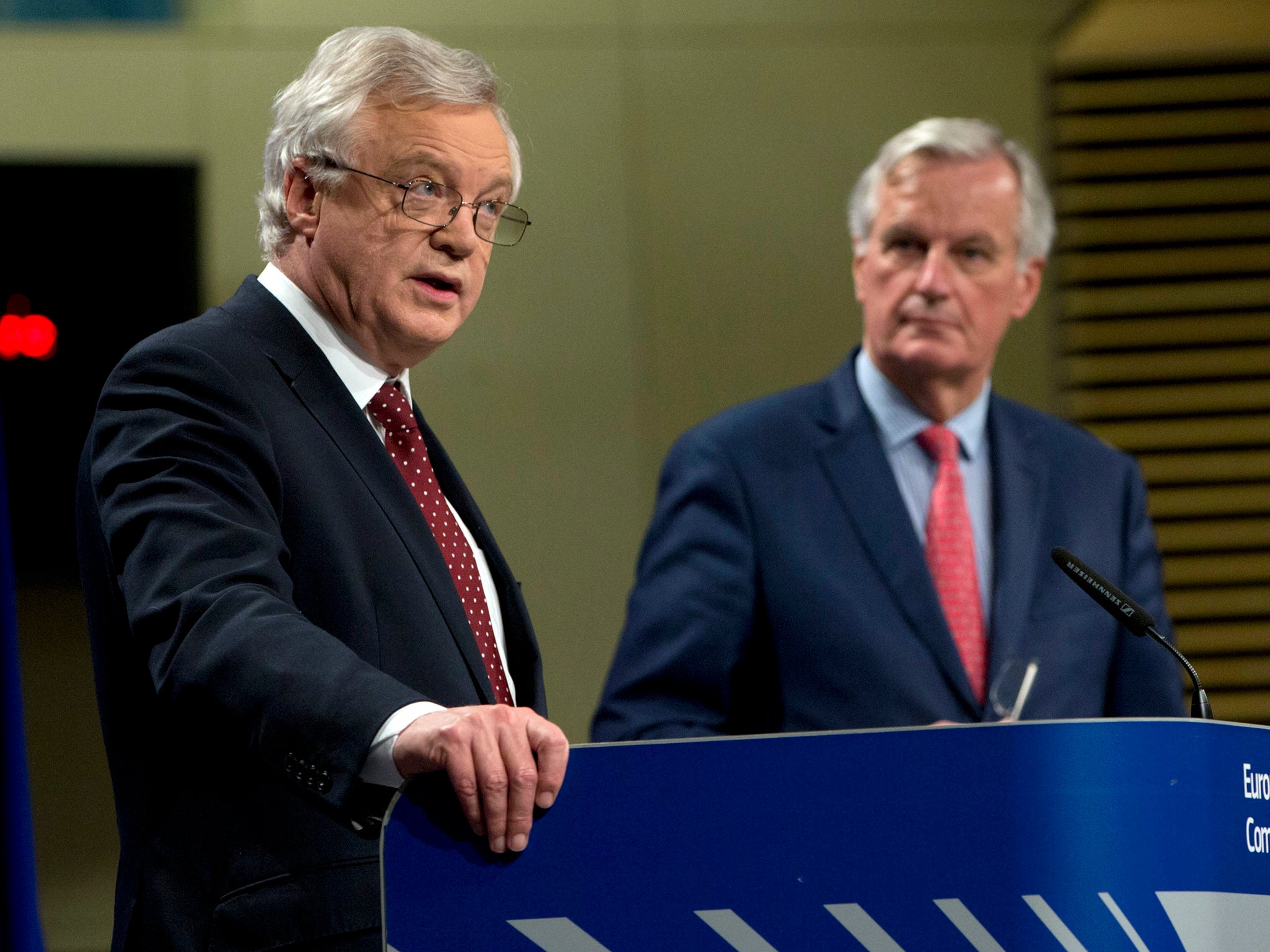The Independent's journalism is supported by our readers. When you purchase through links on our site, we may earn commission.
Finally, the reality of Brexit can no longer be avoided
As we report today, Michel Barnier, the EU negotiator, has told the EU27’s representatives that Britain must accept new EU law during the transition period after Brexit

For many of the British people, Brexit has been a long, slow process in accepting the reality that should have been better understood before the referendum. In the next three weeks, some things will become brutally clear that should have been obvious long ago.
One is that, far from having more money to spend on our treasured patriotic priority, the National Health Service, we will have to pay to leave the European Union and we will have less money thereafter. It was, surely, no coincidence that Philip Hammond, the Chancellor, allocated the neon-lit sum of an extra £350m to the NHS in his Budget on Wednesday, not every week but for the whole of the rest of the financial year. Boris Johnson and Michael Gove should have winced.
As Theresa May girds herself for next month’s EU Council on 14-15 December, her path is strewn with unpalatable truths for her Eurosceptic party and the (small) majority of the nation’s voters. One is that she will have to offer something like £40bn – or €40bn, there is not much difference since the post-referendum devaluation – to settle our financial obligations.
The Brexiters have taken this calmly so far. But Ms May is going to have to confront them with other compromises with reality if she is to secure a breakthrough to the next stage of the talks in Brussels.
As we report today, Michel Barnier, the EU negotiator, has told the EU27’s representatives that Britain must accept new EU law during the transition period after Brexit. This would cross one of the Foreign Secretary’s red lines, which he briefed to The Sun newspaper after the Prime Minister’s Florence speech.
But Mr Johnson is going to have to knuckle under. There was never any question of the EU diluting its laws during a standstill transition, in which the UK would be subject to all the benefits and responsibilities of membership for a short period after leaving. Ms May is understood to argue that we are unlikely to have laws sprung on us, because it takes so long for them to go through the system. The UK would have been consulted about anything that came in during the transition period.
If the Foreign Secretary is going to make a stand on this point, the Prime Minister would not find herself short of candidates to take his place. He may have been popular during the referendum campaign 17 months ago, but his blundering at the Foreign Office has undermined much of his authority since.

As it turns out, it may be that the more difficult intrusion of reality into the Brexit negotiations is the question of the Irish border. Leo Varadkar, the Irish prime minister, is threatening to block progress at Brussels unless Ms May can solve the insoluble riddle of an open border between the EU and a country outside the EU.
Arlene Foster, the Democratic Unionist Party leader and putative first minister of Northern Ireland, today said: “We will not support any arrangements that create barriers to trade between Northern Ireland and the rest of the UK.” But that must mean that there will be barriers to trade between north and south in Ireland.
Ms May is going to have to be straight about this. The reality of Brexit cannot be avoided any longer. It may be that the people of the UK should have a say over the final terms of the Brexit deal, if any, and we are approaching a moment when it becomes clearer what that means.
Join our commenting forum
Join thought-provoking conversations, follow other Independent readers and see their replies
Comments
Bookmark popover
Removed from bookmarks